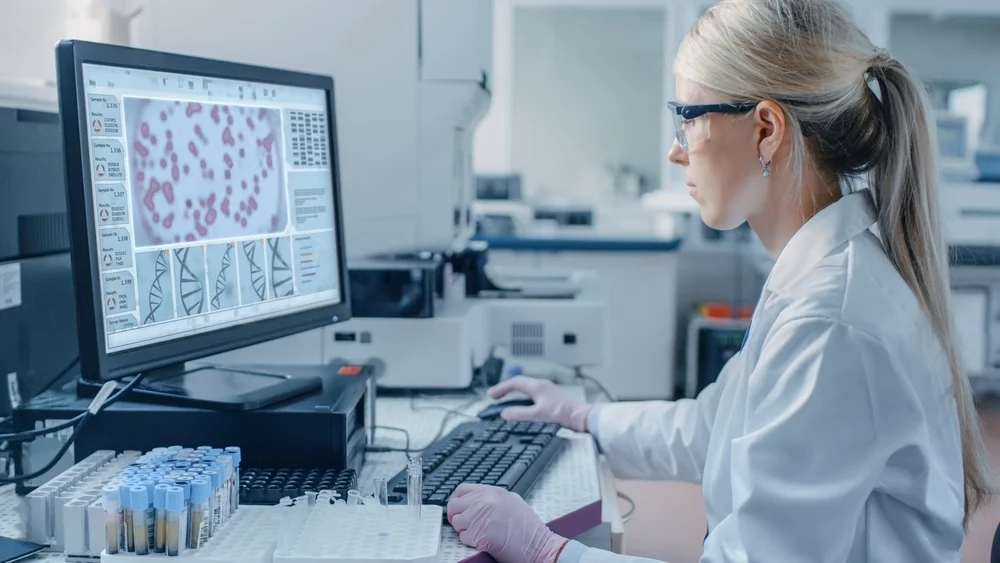Types of Molecular Tests
Next-Generation Sequencing (NGS)
- Comprehensive Analysis: NGS allows for the simultaneous examination of multiple genes, providing a comprehensive view of the genetic alterations in a tumor. This technology helps identify actionable mutations that can be targeted with specific therapies.
- Benefit: NGS can detect a wide range of mutations, from single-nucleotide variants to large genomic alterations, facilitating the design of highly individualized treatment plans.
Immunohistochemistry (IHC)
- Protein Expression Analysis: IHC is used to assess the expression of specific proteins in tumor cells, such as HER2, PD-L1, and ER/PR receptors. This information is crucial for selecting appropriate targeted therapies.
- Benefit: IHC helps in determining the eligibility of patients for therapies like Trastuzumab (Herceptin) for HER2-positive cancers or immune checkpoint inhibitors for PD-L1 expressing tumors.
Polymerase Chain Reaction (PCR)
- High Sensitivity: PCR is used to detect specific genetic mutations with high sensitivity and accuracy. It is commonly used for identifying mutations in genes like EGFR, KRAS, and BRAF.
- Benefit: PCR provides rapid results, enabling timely adjustments to treatment strategies based on the molecular profile of the tumor.
Fluorescence In Situ Hybridization (FISH)
- Genetic Abnormalities Detection: FISH is used to detect chromosomal abnormalities and gene fusions, such as ALK and ROS1 rearrangements in lung cancer.
- Benefit: Identifying these genetic changes allows for the use of targeted therapies like Crizotinib (Xalkori) for ALK-positive lung cancer, which significantly improves PFS and OS.




